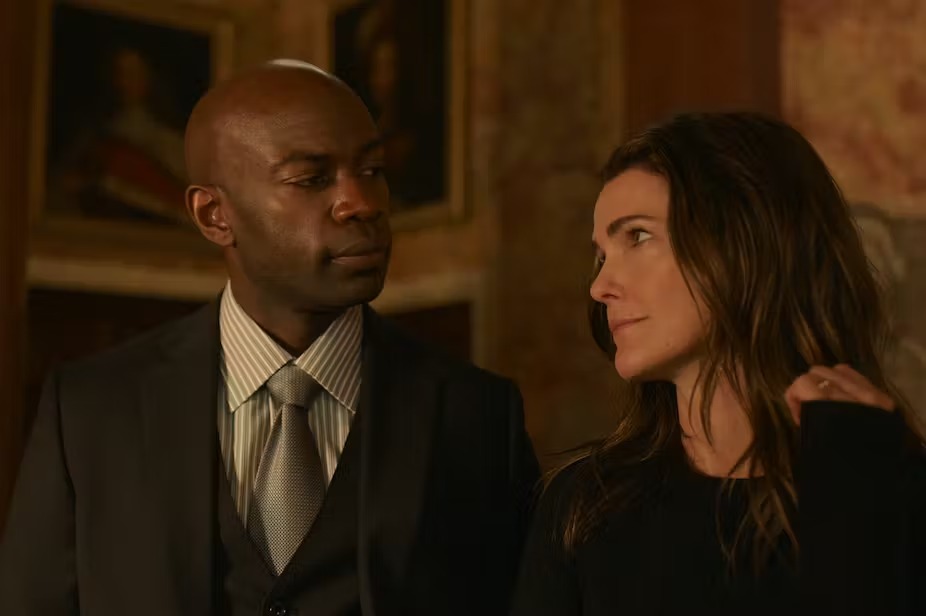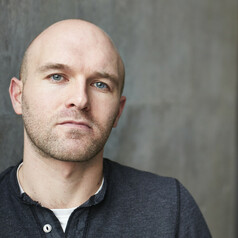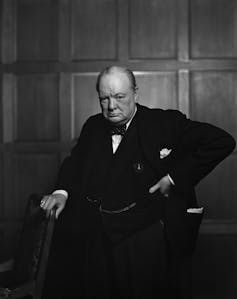Netflix’s new political drama, The Diplomat, is focused on the trials and tribulations of Kate Wyler (Keri Russell), a new American ambassador to Britain. It begins with a deadly attack on a British aircraft carrier and then follows the twists and turns of a joint US and UK attempt to find the culprits.
Ambassador Wyler is an experienced diplomat frustrated by the unwanted interventions of her high profile husband (Rufus Sewell). Wyler is a capable crisis manager irritated by the ceremonial demands of the role but earmarked for great things by the White House (she has been identified as a future vice president).
The trailer for Netflix’s The Diplomat.
It is entertaining stuff and clearly owes much to its highly successful predecessor in dissecting US politics, The West Wing (1999).
The Diplomat also tells the familiar story of the much celebrated “special relationship” between the US and UK. It engagingly critiques, laments and celebrates contemporary US-UK relations.
The show suggests that if the special relationship is to survive into a world turned topsy turvy by Brexit (explicitly named), Trump (hinted at) and war in Europe (repeatedly referred to) it demands a little TLC.
The history of the special relationship
The idea of the “special relationship” was popularised by Winston Churchill in a speech he gave at Fulton, Missouri, in March 1946 that bequeathed two evocative phrases.
One was “Iron Curtain”, deployed to describe the hardening of tensions between east and west. The other, a rallying cry intended to consolidate the Anglo-American bond forged in war, was that “special relationship”.
Churchill was the child of an Anglo-American love match. Library and Archives Canada
For various reasons, Churchill’s phrase quickly entered the lexicon of diplomatic discourse. One reason was its author, a skilful orator whose words always drew press attention. But another was that Churchill had described something – the idea of a special connection between the US and UK – that had long been the subject of sustained cultural attention.
Take, for instance, how the Anglo-American alliance had been depicted in films like A Yank in the RAF (1941), The Way to the Stars (1945) and I Live at Grosvenor Square (1945).
All these films celebrated special Anglo-American connections often – like Churchill – with a nod towards shared language, values and history. And crucially, given a key feature of The Diplomat, many also did so via a specific narrative ploy: a transatlantic love tryst.
It is a revealing metaphor and in it the gendered assumptions shaping the 1940s US-UK alliance are powerfully exposed. This was a relationship, these films suggest, sustained by love and romance just as much as by trade or treaties – an idea that Churchill, himself the product of an Anglo-American love match, understood very well.
Love Actually’s ‘special relationship’ scene.
While this was a ploy with a deep history (traceable to the writings of 19th century authors such as Henry James), it was in wartime and, later, post-war popular culture that it secured new visibility.
By the 1990s the trope was a staple, with transatlantic romances featuring in everything from A Matter of Life and Death (1946), to D-Day: Sixth of June (1956), to The War Lover (1962), Yanks (1979) and the popular television series about the second world war American presence in Britain, We’ll Meet Again (1982).
Still more recently, it has featured in a host of transatlantic rom coms, from Notting Hill (1996) to Love Actually (2003) and The Holiday (2006).
Unrequited love?
In its love triangle between the US ambassador, her husband and the British foreign secretary (David Gyasi), The Diplomat deploys this same metaphor in order to critique the special relationship.
The drama underscores that close ties remain between the nations. It’s apparent in their intelligence sharing, the speed with which the US president offers his support to the British prime minister, the easy familiarity between the two nation’s principal players and – most obviously – in the burgeoning romance between the US ambassador and the British foreign secretary.
But there is also a clear sense that the two nations have become estranged.
Does London really have Washington’s full support? Does Brexit Britain retain its strategic significance to the US? And of course, sublimating it all, is the most important question of all: is the foreign secretary’s love for the ambassador unrequited? Does she feel for him what he feels for her?
If she does, then perhaps this is the very sort of TLC that might restore and rejuvenate the special relationship. After all, to thrive and prosper, any good relationship needs a little romance.



 Disney’s Streaming Growth Hinges on International Expansion and Local Content
Disney’s Streaming Growth Hinges on International Expansion and Local Content  Trump Slams Super Bowl Halftime Show Featuring Bad Bunny
Trump Slams Super Bowl Halftime Show Featuring Bad Bunny  The Mona Lisa is a vampire
The Mona Lisa is a vampire  Trump–Kushner Links Raise Concerns as Paramount Pushes $108B Warner Bros Discovery Bid
Trump–Kushner Links Raise Concerns as Paramount Pushes $108B Warner Bros Discovery Bid  Paramount’s $108.4B Hostile Bid for Warner Bros Discovery Signals Major Shift in Hollywood
Paramount’s $108.4B Hostile Bid for Warner Bros Discovery Signals Major Shift in Hollywood  Trump Proposes Two-Year Shutdown of Kennedy Center Amid Ongoing Turmoil
Trump Proposes Two-Year Shutdown of Kennedy Center Amid Ongoing Turmoil  FCC Chair Brendan Carr to Testify Before Senate Commerce Committee Amid Disney-ABC Controversy
FCC Chair Brendan Carr to Testify Before Senate Commerce Committee Amid Disney-ABC Controversy  Trump to Pardon Reality Stars Todd and Julie Chrisley After Tax Fraud Conviction
Trump to Pardon Reality Stars Todd and Julie Chrisley After Tax Fraud Conviction  Jazz Ensemble Cancels Kennedy Center New Year’s Eve Shows After Trump Renaming Sparks Backlash
Jazz Ensemble Cancels Kennedy Center New Year’s Eve Shows After Trump Renaming Sparks Backlash  Pulp are back and more wistfully Britpop than before
Pulp are back and more wistfully Britpop than before  George Clooney Criticizes Trump’s Tariff Threat, Calls for Film Tax Incentives
George Clooney Criticizes Trump’s Tariff Threat, Calls for Film Tax Incentives  6 simple questions to tell if a ‘finfluencer’ is more flash than cash
6 simple questions to tell if a ‘finfluencer’ is more flash than cash  Netflix Shuts Down Boss Fight Entertainment, Developer of “Squid Game: Unleashed” Amid Gaming Strategy Shift
Netflix Shuts Down Boss Fight Entertainment, Developer of “Squid Game: Unleashed” Amid Gaming Strategy Shift  Mexico Probes Miss Universe President Raul Rocha Over Alleged Criminal Links
Mexico Probes Miss Universe President Raul Rocha Over Alleged Criminal Links  Some ‘Star Wars’ stories have already become reality
Some ‘Star Wars’ stories have already become reality 

































